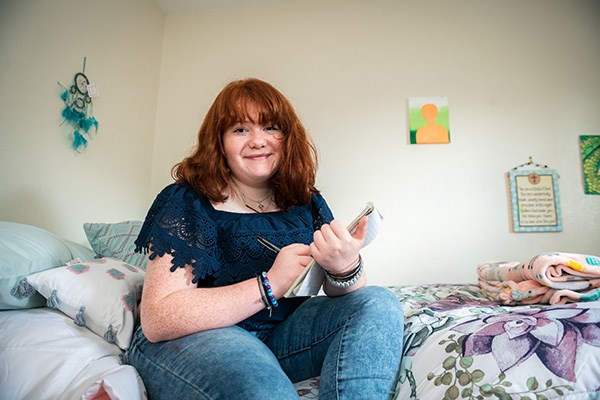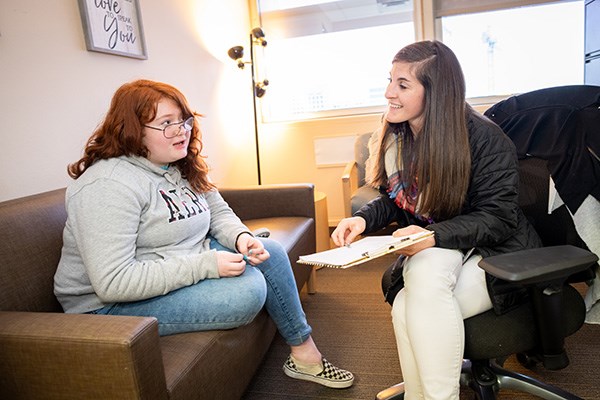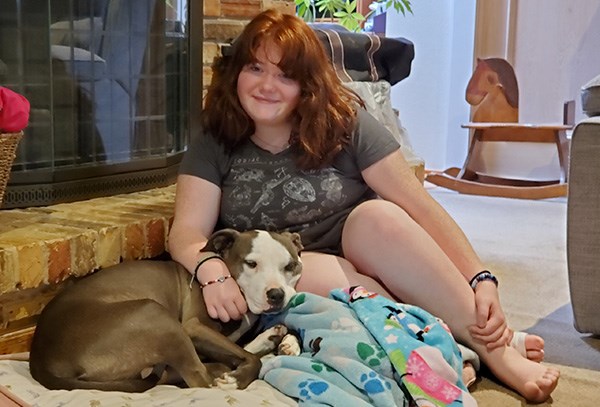Abby Phillips, like many teens exposed to social media, had been bullied online. A girl posted Abby's photo on Instagram and, in the description, bashed her classmate.
Online bullying, coupled with issues at home only intensified the emotional turmoil Abby was experiencing. At 13, Abby made two suicide attempts. She was part of the adolescent group — ages of 10 and 24 — who saw an significant increase in suicide attempts between 2014 and 2017 in the U.S. from 7 percent per 100,000 youths to nearly 11 percent.
“I always like to make people happy and I’m a people pleaser," recalls Abby, who is now 16. "The fact that somebody didn’t like me, and somebody wanted to say those negative things about me, really upset me.”
After multiple inpatient care programs, Abby found Children's Health Suicide Prevention and Resilience (SPARC) program at Children's Health Dallas. It specifically targets the mental health needs for teens and preteens and gave Abby and her parents a way to continue therapy and maintain the momentum of care she received while inpatient.
SPARC is an Intensive Outpatient Program and doesn’t require hospital stay, so Abby was able to continue to attend school, stay at home with family and then attend three-hour evening sessions twice weekly. The program focuses on group therapy, where other teens going through similar experiences can connect with people their own age and work through their daily struggles. Individual and family therapy are also available.

SPARC program director Betsy Kennard, a professor of psychiatry at UT Southwestern, was a key developer of the program, helping prepare for its launch in January 2014. She designed the program to offers research-based skills and strategies for teens as well as parents to reduce suicide risk. “We teach how to regulate their emotions, to tolerate the stress, how to manage stress, how to manage social media, how to interact with others to promote positive experiences and to reduce conflict with peers and at home,” Kennard says.
One of the most important things Kennard wants parents to know is that “it’s okay to ask them [your child] if they’re feeling so distressed that they want to die and asking them do they think of killing themselves and, if so, have they thought of how to do it.
“A lot of parents avoid that difficult discussion about suicide, but what we know from research, I think parents worry that they put this idea in the head, in the mind, of their child and what we know is that that is not the case,” she says.
The second most important thing for parents to know, she says, is to lock up firearms because youth who attempt suicide by firearm are more likely to die by suicide.
Kennard also recommends securing medications even if your child is not showing any symptoms of being distressed; they may have friends whose mindsets you can not determine at any given time.

At the SPARC program, Abby learned coping skills and other ways to express herself. She started writing poetry to express her internal feelings and external ones. She learned mindfulness, or being mindful in the moment "because that can be pretty helpful," she says. Instead of focusing on what you're feeling, you focus on exactly what is happening."
Three years later, Abby finds true joy in spending time with her dogs and looking forward to the future. Researching colleges has become a fun pastime for her. “I feel like I want to be something different every few months," she says. "I’m really interested in helping other people. Currently, it’s in the medical field because the way things work it looks interesting, but it could end up being something else. My ultimate goal is to find a career where I can help other people.”
Abby has started helping others by being one of Children’s Health’s North Texas Giving Day 2020 champions. She shared her story with the hope that her words might save someone’s life.
Reaching out, she says, can have positive results.
“I feel like I genuinely smile now and I genuinely laugh and I genuinely enjoy what happens. Because before I had gotten pretty good at putting on a smile, laughing, staying in a good mood for everybody else. But I feel like now I’m able to genuinely feel that way and enjoy my time with friends, enjoy my life and be excited about the future.”
Abby says there are still many other young adults and adolescents who are engaged in their own emotional battles and may need encouragement to get help. She suggests, “Don’t be scared to reach out and don’t be scared to ask for help. It’s okay to have feelings, it’s okay to have emotions. Don’t be afraid to take that step.”
September is Suicide Prevention Awareness Month. Suicide prevention holds a greater imperative than ever before as year-after-year the percentage rate continues to increase. The Centers for Disease Control (CDC) has recorded, in multiple studies since the early 2000s, that the United States has seen rising rates in adolescent and young adult suicides specifically since 2006.
If you or a loved one needs help, please visit suicidepreventionlifeline.org/ or call the National Suicide Prevention Lifeline at (800) 273-8255


![Top 5 Reads Of The Week [June 23-27]](https://www.vmcdn.ca/f/files/localprofile/images/events/downtown-celina-city-of-celina.jpg;w=120;h=80;mode=crop)

